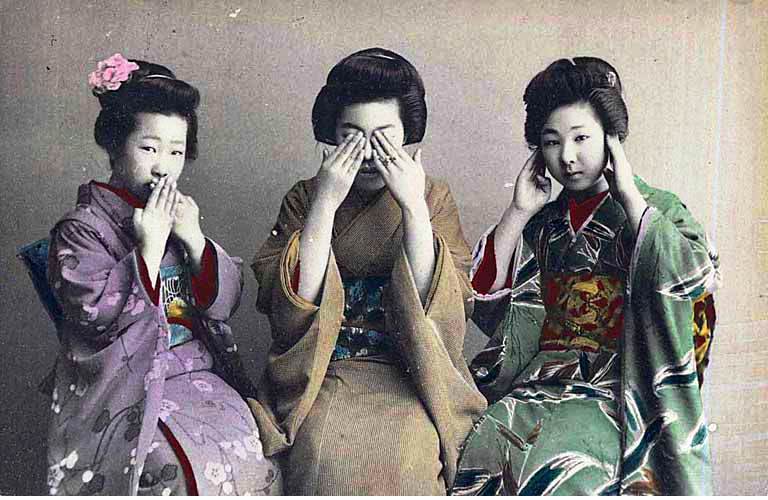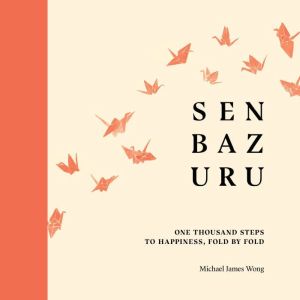Calmness of behavior, composure of mind, should not be disturbed by passion of any kind. –Nitobe Inazo
A calm mind appears to be impossible. Everywhere we turn something is trying to disturb us in some way. News tries to make us feel unsafe. Advertisements and social media try to make us feel FOMO. Work and school teem with drama. Anime tries to make us horny. All of this works against having a calm mind and the inner peace that brings.
A calm mind allows you to be in control of yourself. You aren’t subject to all the outside forces which attempt to control you, often in ways you don’t notice. Any sort of agitation or excitement makes you vulnerable to manipulation. This isn’t to say you should be emotionless and robotic. Calmness isn’t dead. Rather, a calm mind allows emotions and thoughts to come and go without holding onto them, being disturbed by them, or identifying with them. A still mind allows you to be intentional in your conduct. In the end, you choose your thoughts and emotions–you choose to hold onto them or just let them pop up and fade away. Bushido’s writers emphasized the need to have a calm mind when facing death. It increases your chances of survival in war, but a calm mind also allows you to conduct yourself with duty, honor, honesty, intention, and love.
The ultimate meaning of warriorhood is love and respect. –Kumazawa Banzan
Love and respect isn’t easy to practice, particularly toward enemies, toward parents and friends who don’t understand you, and toward a culture that seeks to manipulate you. A sign of character is the ability to listen calmly and endure:
One should listen with a calm mind to what one’s parents say, even if what they say is erroneous. –Hojo Shigetoki
Listening and following what your parents say, for example, even when they are wrong signals the strength of your character. There’s limits to this principle, of course. The practice of listening with a calm mind comes form love and respect. It doesn’t matter if the person – in this case, your parents–deserve love and respect. Your practice of love and respect grows your character. The less deserving a person is for your love and respect, the greater your character becomes. This Bushido principle appears in Christianity too. According to Christianity, God extends love to all of us and not a single of of us is worthy of that love. God’s character drives him to do this. So too a person of strong character learns how to extend calmness, love, and respect to the undeserving. This doesn’t mean you allow yourself to be trampled. Calmness doesn’t mean being a doormat or never taking a stand. Rather than allowing anger to rule you–and anger has a place too–you take a stand from a calm understanding of the other’s point of view and your own. You can hold many perspectives in your mind without compromising your own.

When it comes down to it, there are two inescapable facts as Bushido writers point out:
- Your emotions are your responsibility.
- Your thoughts are your responsibility.
You choose what you feel and think. While it doesn’t feel that way in the moment, learning how to keep a calm mind helps you with this reality. You begin to see how your thoughts and emotions are your choice. Of course, there’s limits. I often fail in practicing this. Emotions like irritation and stress trample me sometimes, but that’s okay. Imperfection is the state of being human, and I feel encouraged by this. I enjoy the effort personal growth requires. So whenever I see one of my failures, in addition to feeling frustration and disappointment, I also feel elated. I’ve found something I can work at improving! Elation is a choice I make. I used to be depressed and flattened by such imperfections until I saw I was choosing to feel that way.
Mind your mind; guard it resolutely. Since it is the mind that confuses the mind, don’t let your mind give in to your mind. –Suzuki Shosan
Shosan captures this realization well. The mind deludes and confuses itself. You have to notice your habits of feeling and thinking and consciously choose to work against them if those habits are harmful. If you have habits that work against calmness, you need to choose to do the opposite. A calm mind makes for a peaceful life, a life where you sit in control instead of being carried along by circumstance. What makes people angry, depressed, elated, stressed, upset, sad, only move you when you choose to be moved. You feel the emotions, of course, but you don’t grasp and hold onto them. Calmness is not emotional suppression. When you have a calm mind, life becomes more enjoyable. You can focus on the important things, and you notice the little blessings that always surround us. You awaken to reality, in other words, and to both the blessings and the hardships.
How do you develop a calm mind?
Tranquility is courage in repose. –Nitobe Inazo
I’ve been misleading you. So far, I’ve spoken about the benefits of a calm mind and the responsibilities we have. But this isn’t the truth of the matter. You are not your mind nor are you your body. You are not your sexuality, emotions, thoughts, or habits. If you’ve done any sort of meditation, you will see the fact of this. When you go searching for yourself, you don’t find yourself. There is no self to find.
Take a moment and blink. Notice the act of blinking. Now, notice you are you noticing the act of blinking. You’ve found the true you! Confused? The true you, the self behind all concepts of self, is awareness. The noticer that notices the act of blinking is your soul. It sits beyond your mind, your thoughts, your emotions, and your body. Notice your current thought. See how you aren’t that thought? All meditation attempts to do is bring the noticer to notice itself, to become aware of your Awareness. That Awareness is you. Everything else is an artificial construct we call “self”.

Danapani, a Hindu priest, in his book The Power of Unwavering Focus likens Awareness to a ball of light. It moves from this sentence to, say, the weight of your phone in your hand, to the thought that this blogger writes crap. That is the true you moving around. You are pure Awareness, nothing less.
So that brings me back to developing a calm mind. Because you are Awareness and not your mind, you can watch your mind and choose to be aware of your thoughts and emotions. The thoughts and emotions you choose become stronger over time. So, to develop a calm mind, you have to choose calm thoughts and emotions. One way to do this is to touch destructive thoughts – I am a loser – and challenge them: “What makes me feel a loser? Okay, so those are the reasons. How are these reasons false? What is this feeling trying to tell me?” Reason tends to lead toward calmness. Acknowledging emotions and then letting them run their course without acting upon them, which can take a long time if you have the habit of holding onto them, also helps. The key to calmness isn’t repression. The key is to separate you, Awareness, from identifying with the mind.
This is critical, so I will repeat it: you are not your sense of identity–your body, sexuality, thoughts, emotions, politics,sports affiliation, religion, and everything else we use to construct the illusion of identity. You are Awareness. Therefore, you can learn to step back and choose calmness and character.
Everything I wrote here sits within the ideals of Bushido and Zen. Developing a calm mind is an act of courage. It’s not easy to face yourself. Over time and practice, you can achieve what Yamaga Soko wrote about:
With a man of mettle being so big-hearted and high-minded, he will naturally have a certain mellowness about him. Mellowness implies depth and tolerance. It means keeping your virtues to yourself, covering your light, and not evincing everything extraordinary.




